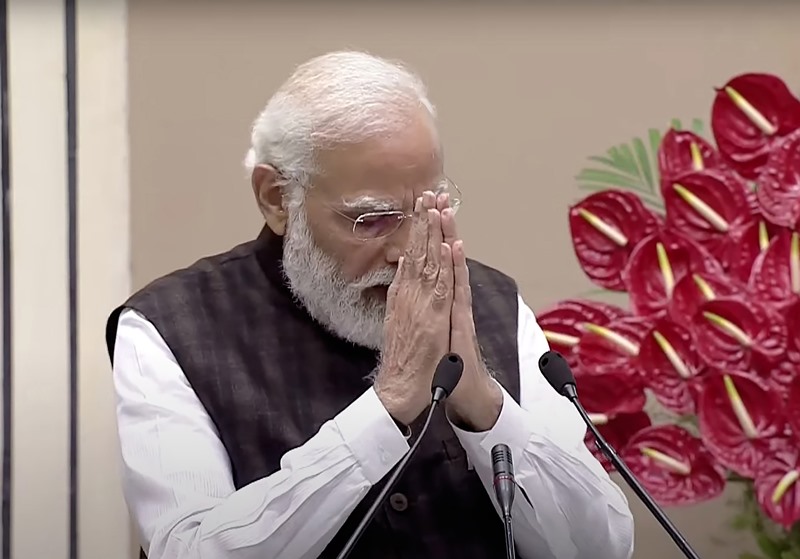New Delhi: (Mar 30) The Armed Forces (Special Powers) Act, which gives armed forces operating in disturbed areas sweeping powers and immunity from prosecution unless approved by the Centre, was on Sunday extended for six months in entire Manipur, except the jurisdictions of 13 police stations, given the law and order situation there.
The AFSPA, which is imposed in areas declared “disturbed”, has also been extended to eight districts in Nagaland and 21 police station areas in five other districts of the state for six months, according to a notification issued by the Union home ministry.
The law was also extended to Tirap, Changlang, and Longding districts in Arunachal Pradesh and three police station areas in Namsai district in the state for six months beginning April 1.
The violence-stricken northeastern state of Manipur had been under Presidential rule since February 13, 2025, following the resignation of Chief Minister and BJP leader N Biren Singh. Manipur has seen sporadic events of violence break out after the cycle of ethnic violence between the Meitei and Kuki communities began on May 3, 2023.
AFSPA was first imposed in Manipur in 1958, specifically in the Naga-dominated districts of Senapati, Tamenglong, and Ukhrul, in response to Naga insurgencies.
Over time, it was extended to other areas, including Kuki-Zomi regions during the Mizo insurgency in the 1960s, and by 1980, it covered the entire state due to rising Meitei insurgencies.
AFSPA has been continuously in force in various parts of Manipur since its initial imposition, with periodic extensions and adjustments based on the security situation.
Protests against the Armed Froces (Special PPowers) Act (AFSPA) in Manipur intensified after the alleged rape and killing of Thangjam Manorama in 2004, sparking widespread public outrage and demands for its repeal.
Civil rights activist Irom Sharmila became a symbol of resistance by undertaking a hunger strike starting in November 2000, which lasted over 16 years, to protest against the Act’s human rights violations.
The Namsai, Mahadevpur, and Chowkhan police stations of Arunachal Pradesh that border Assam have been tagged as ‘disturbed’, along with Tirap, Changlang, and Longding districts, by the Central government. AFSPA has been extended for 6 months in these areas.
The Armed Forces (Special Powers) Act (AFSPA), enacted in 1958, is a piece of legislation that grants special powers to the Indian Armed Forces and Central Armed Police Forces operating in areas declared as “disturbed” by the government.
These areas are typically regions experiencing insurgency or militancy, where the state governments find it challenging to maintain law and order.
Power to Use Force: AFSPA allows security forces to use force, including shooting to kill, against individuals acting against the law in disturbed areas, after giving due warning.
Arrest and Search: Security personnel can arrest anyone suspected of committing a cognisable offence without a warrant and search any premises for such individuals or arms.
Legal Immunity: AFSPA provides legal immunity to security forces for actions taken under its provisions, requiring Central Government sanction for any legal proceedings against them.
Disturbed Areas: The declaration of an area as “disturbed” is typically made by the State or Central Government, and such areas must maintain this status for at least three months.
Where is AFSPA in Effect in India?
AFSPA is currently in force in parts of the Northeast (Assam, Nagaland, Manipur, and certain districts of Arunachal Pradesh) and was previously applied in Jammu and Kashmir until its revocation in 2019.






